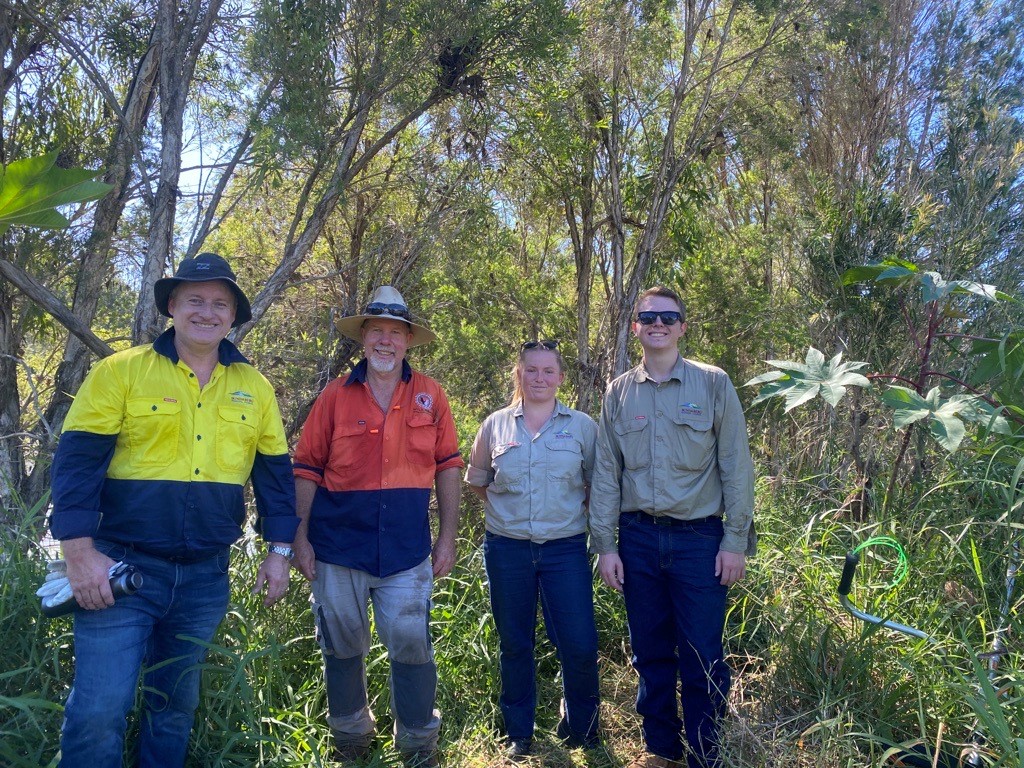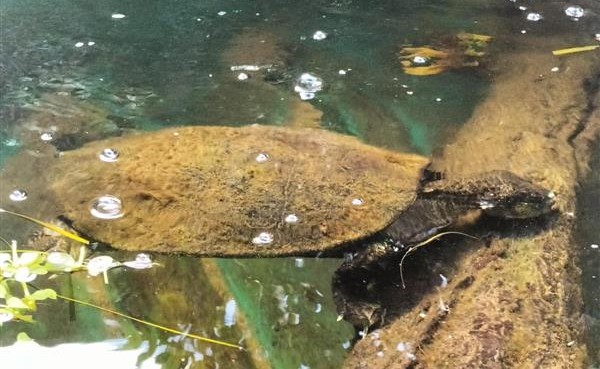
Council’s Alexandra Park Zoo team is doing its part to help protect the critically endangered White Throated Snapping Turtle.
There are two White Throated Snapping Turtles (Elseya albagula) currently housed at Alexandra Park Zoo.
The species, which is only found in three river catchments – the Burnett, Mary and Fitzroy, is an aggregated nester which means it comes back to nest on the same general nesting banks.
This puts it at risk of predators, both native and non-native, including foxes, water rats, goannas, dogs and from cattle trampling nesting banks.
An added effect is the lapse of time between when eggs are laid in autumn – winter to hatching in the warmer weather during December.
When nests are not protected, predation rates are close to 100%.
With this knowledge, the team at Alexandra Park Zoo approached the Department of Environment and Science (DES) and local group WYLD Projects Indigenous Corporation to become part of the protection efforts.
Recently Alexandra Park Zoo Supervisor Kate Beskeen and members of her team monitored a section of the Burnett River during the breeding season.
“DES provided us with initial training which involved learning about turtle identification strategies, how to safely monitor nests and nesting behaviours,” Kate said.
“It also included information about breeding seasons for all freshwater turtles found in the Burnett and how to record what is seen on the river.”
The zoo team worked with WYLD Projects Indigenous Corporation to clear the riverbanks of invasive weeds which is another challenge faced by the White Throated Snapping turtles.

The banks need clearing to allow the turtles access and the safest way to do this for the turtles is manually as sprays affect the soil for long periods.
With the banks prepared, the zoo team was assigned a section of river to monitor while waiting for cold and rainy conditions.
“These two environmental indicators would send the team to their section of bank to check for tracks, nesting attempts, what species had been on the bank, including predators,” Kate said.
“All eggs found were moved to a protective cage allowing the hatchlings to escape but keeping predators out which significantly increased recruitment in the species.”
Kate said the team’s efforts had helped to increase the data collected and as the team’s knowledge and skill in nest detection improved, so would the likelihood of protecting more clutches.
“Our tangible connection with this project has translated through to a greater depth in the zoo team’s educational talks and tours and presents an opportunity to promote the vital work WYLD Projects undertakes,” she said.
“Importantly it illustrates active research and conservation which begins a conversation around the important role zoos can play in contributing to species recovery in the wild.
“Our team looks forward to making 2024 the beginning of an ongoing seasonal protection effort.”
WYLD Projects General Manager Brad Crosbie said protection activities had previously been undertaken by the Department of Environment and Science but WYLD Projects had taken it on in 2018.
“WYLD Projects has volunteered our time caring for Milbi for the last six years, and are the only organisation protecting clutches of eggs whilst undertaking conservation and protection activities for our critically endangered White throated snapping turtle,” Brad said.
“Having the support of Alexandra Park Zoo staff will not only assist in educating the general public of this species but also assist with conservation and protection activities in areas Bundaberg Regional Council has access to.”
He said that, while no funding had been available to undertake studies on the success of the program, it was essential work to save the critically endangered species from becoming genetically extinct with the next generation.




